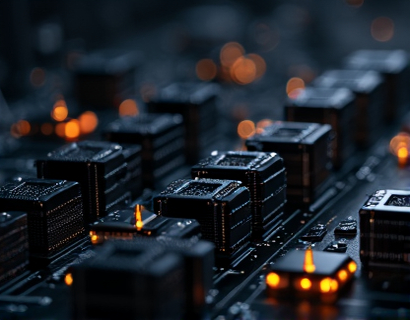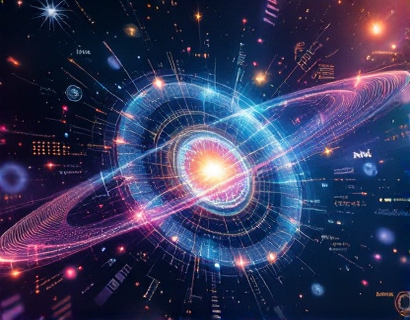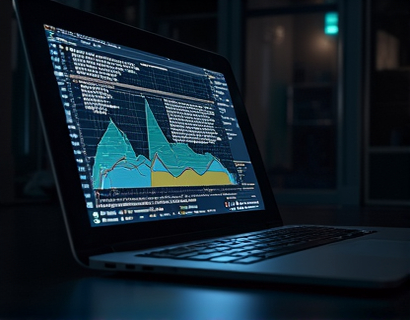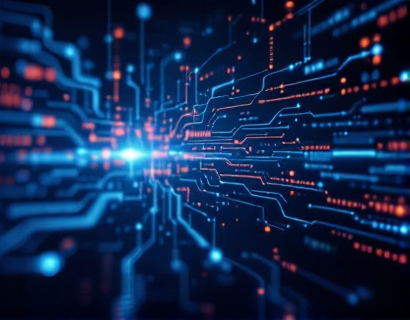Transforming the Shooting Sports Experience with AI-Powered Insights
The world of shooting sports has long been a domain of precision, skill, and community. Enthusiasts and professionals alike have always sought ways to improve their techniques, share knowledge, and connect with others who share their passion. The advent of AI technology has opened new avenues for enhancing the shooting experience, offering personalized insights, and fostering a more connected and vibrant community. This article explores how AI-powered platforms are revolutionizing the way shooting sports enthusiasts interact, learn, and grow.
Understanding the Role of AI in Shooting Sports
AI, or Artificial Intelligence, refers to the simulation of human intelligence processes by machines, particularly computer systems. These processes include learning, reasoning, and self-correction. In the context of shooting sports, AI can analyze vast amounts of data, recognize patterns, and provide insights that would be difficult or impossible for humans to discern on their own. The integration of AI in shooting sports is not just about improving individual performance but also about building a more connected and supportive community.
Personalized Insights and Tailored Advice
One of the most significant benefits of AI-powered platforms in shooting sports is the ability to offer personalized insights and tailored advice. By analyzing a user's shooting data, such as accuracy, consistency, and technique, AI algorithms can identify areas for improvement and suggest specific exercises or adjustments to enhance performance. This level of customization ensures that each user receives guidance that is directly relevant to their unique needs and skill level.
For instance, an AI system can review a series of shots and provide feedback on factors like trigger control, follow-through, and alignment. It can also compare the user's performance over time, tracking progress and highlighting areas that require further attention. This continuous feedback loop helps shooters refine their skills more efficiently and effectively.
Enhancing Technique Through Video Analysis
Video analysis is another powerful tool that AI can leverage to improve shooting techniques. By capturing and analyzing video footage of a shooter in action, AI can provide detailed visual feedback. This can include slow-motion replays, overlays of ideal technique, and annotations pointing out specific issues. Such visual aids are invaluable for learners, as they can see and understand the nuances of proper form and technique more clearly than through text or verbal instructions alone.
Moreover, AI can compare a shooter's technique to that of top performers, offering insights into how minor adjustments can lead to significant improvements. This comparative analysis helps shooters set realistic goals and understand the steps needed to achieve them.
Building a Connected Community
The shooting sports community has always thrived on shared experiences and mutual support. AI-powered platforms can enhance this community aspect by facilitating connections between enthusiasts and professionals. Through personalized chat interfaces, users can engage in meaningful conversations, ask questions, and share tips with others who have similar interests or skill levels. This real-time, AI-facilitated communication breaks down barriers and fosters a sense of belonging and collaboration.
These platforms can also host virtual events, workshops, and Q&A sessions, where users can interact with expert shooters and instructors. AI can help match participants with speakers or mentors based on their specific interests and goals, ensuring that each interaction is valuable and relevant. This personalized approach to community engagement makes the experience more engaging and effective.
Sharing Experiences and Learning from Others
One of the most enriching aspects of the shooting sports community is the opportunity to learn from the experiences of others. AI-powered platforms can curate and share a wealth of content, including articles, videos, and user-generated stories. By analyzing user preferences and engagement patterns, AI can recommend content that is most likely to benefit each individual. This personalized content curation ensures that users are constantly learning and inspired to improve.
For example, a user who is particularly interested in long-range shooting can receive a feed of articles and videos focused on that discipline. They can also connect with other long-range shooters, forming a network of peers who can offer advice, share tips, and provide moral support. This exchange of knowledge and experiences is crucial for personal growth and community building.
Tracking Progress and Setting Goals
Setting and achieving goals is a fundamental part of any skill development journey. AI-powered platforms can assist users in setting realistic and achievable goals based on their current skill level and desired outcomes. By tracking progress over time, AI can provide regular updates and adjustments to these goals, ensuring they remain challenging yet attainable.
Users can input their specific objectives, such as improving accuracy by a certain percentage or mastering a new technique within a set timeframe. The AI system will then create a personalized training plan, complete with recommended exercises, practice schedules, and milestones. Regular check-ins and performance analysis help users stay on track and make necessary adjustments along the way.
Fostering a Culture of Continuous Improvement
The integration of AI in shooting sports is not just about providing tools and resources; it's about fostering a culture of continuous improvement and lifelong learning. By offering personalized insights, technical analysis, and community support, AI-powered platforms encourage shooters to constantly push their boundaries and strive for excellence. This mindset shift can lead to significant improvements in performance and a deeper appreciation for the sport.
Moreover, the data-driven approach of AI helps demystify the learning process, making it more accessible to beginners and less intimidating for those at advanced levels. Shooters of all backgrounds can benefit from the objective, data-backed feedback and guidance, leading to a more inclusive and supportive community.
Challenges and Considerations
While the benefits of AI in shooting sports are numerous, there are also challenges and considerations to keep in mind. One key issue is the accuracy and reliability of the data used to train AI algorithms. High-quality, diverse datasets are essential to ensure that the insights provided are valid and applicable to a wide range of shooting scenarios and skill levels. Continuous validation and updating of these datasets are necessary to maintain the platform's effectiveness.
Another consideration is the user interface and user experience. AI-powered tools must be intuitive and user-friendly to encourage adoption and regular use. Complex or cumbersome interfaces can deter users from fully leveraging the platform's capabilities. Designing a seamless and engaging user experience is crucial for the success of these platforms.
The Future of AI in Shooting Sports
As AI technology continues to advance, the potential for innovation in shooting sports is vast. Future developments may include more sophisticated predictive analytics, augmented reality training simulations, and even AI-driven coaching assistants. These advancements will further enhance the learning experience and make the sport more accessible to a broader audience.
Additionally, the integration of wearable technology and IoT devices can provide real-time biometric data, allowing AI to offer even more precise and context-aware feedback. This holistic approach to performance analysis and improvement can take shooting sports to new heights, both literally and figuratively.
In conclusion, AI-powered platforms are transforming the shooting sports community by providing personalized insights, enhancing techniques, and fostering a more connected and supportive environment. By embracing these technological advancements, shooters can elevate their skills, share their passion, and grow together in a vibrant and dynamic community.










































